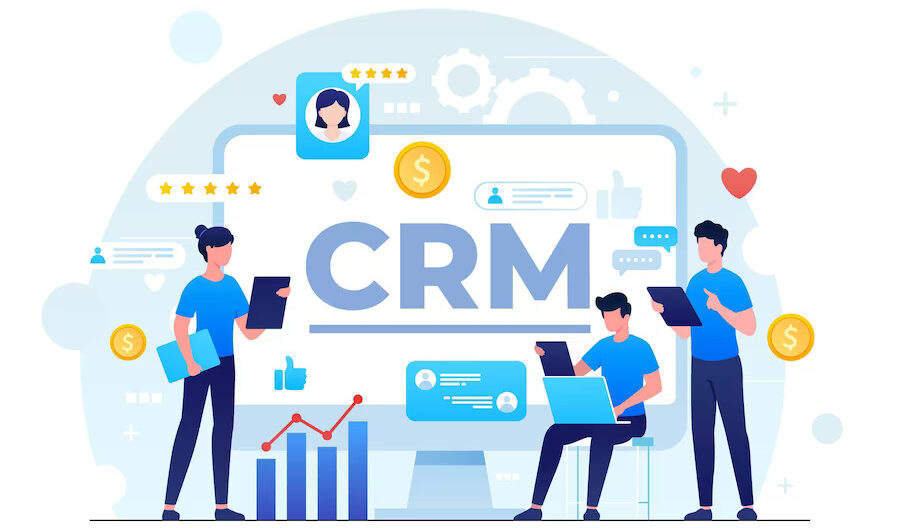10 Essential Tools and Strategies for E-commerce Businesses
- 1 10 Best Tools for E-commerce Businesses
- 1.1 Email Marketing Tools
- 1.2 Inventory Management Systems
- 1.3 Customer Relationship Management (CRM) Software
- 1.4 E-commerce Website Optimization
- 1.5 Social Media Marketing
- 1.6 Content Marketing
- 1.7 Pay-Per-Click (PPC) Advertising
- 1.8 Customer Reviews and Ratings
- 1.9 Influencer Marketing
- 1.10 Search Engine Optimization for E-commerce
- 1.11 Final Thoughts
Running a successful e-commerce business in today’s competitive landscape requires more than just a great product. You need the right tools and strategies to stay ahead of the game. In this guide, we’ll delve into 10 essential tools and strategies that can make a world of difference in the growth and success of your e-commerce venture.
10 Best Tools for E-commerce Businesses
Email Marketing Tools
Email marketing is a cornerstone of e-commerce success. It’s a direct channel to your customers’ inboxes, allowing you to engage with them, promote your products, and nurture lasting relationships. However, simply sending emails is not enough; ensuring that your emails reach the intended recipients and do not end up in spam folders is crucial.
One of the fundamental tools for achieving this is email deliverability tests. These tests help you assess how likely your emails are to land in the inbox or get flagged as spam. It’s essential to use a reliable tool to optimize your email campaigns. SendGrid, for instance, offers a comprehensive suite of email marketing tools.
By using their services, you can run tests to evaluate your email content, sender reputation, and other factors that affect deliverability. This ensures that your emails have a better chance of reaching your customers’ inboxes, increasing the likelihood of engagement and conversions.
When you need to send bulk email to Gmail efficiently, tools like Gmail’s bulk email sending feature can be a valuable asset. Gmail is a widely used email platform, and its bulk email functionality allows you to send a large volume of emails to your subscribers while maintaining the professional look and feel of your messages.
Inventory Management Systems
Inventory management is the backbone of any e-commerce operation. Without efficient inventory management, you risk overstocking or running out of your most popular products, leading to customer dissatisfaction and financial losses.
Modern e-commerce businesses rely on advanced inventory management systems to streamline their operations. These systems not only help you keep track of your current stock levels but also enable you to forecast demand, optimize reorder points, and manage multiple sales channels.
For example, Shopify, one of the leading e-commerce platforms, offers robust inventory management features. It allows you to monitor your stock in real time, automatically update product availability, and even set up alerts for low-stock items. By leveraging such tools, you can ensure that you always have the right products on hand to meet customer demand.
Customer Relationship Management (CRM) Software
Building and maintaining strong relationships with your customers is paramount in the e-commerce industry. A satisfied customer is more likely to become a loyal one, making repeat purchases and recommending your store to others. To achieve this, investing in a capable CRM system is a wise decision.
CRM software helps you centralize customer data, track interactions, and personalize your marketing efforts. By having a 360-degree view of your customers, you can tailor your communication to their preferences and needs, increasing the likelihood of conversions.
E-commerce Website Optimization
Your e-commerce website is your digital storefront, and it plays a pivotal role in shaping the first impression customers have of your brand. Therefore, optimizing your website for better user experience and increased conversions is essential.
One of the key tools for achieving this is Google Analytics. It provides valuable insights into how users interact with your website, including which pages they visit, how long they stay, and where they drop off during the checkout process. By analyzing this data, you can identify areas for improvement and make data-driven decisions to enhance the user experience.
Social Media Marketing
Harnessing the power of social media is a must for e-commerce businesses looking to connect with their audience. Tools like Hootsuite, Buffer, or Sprout Social can be invaluable in managing your social media presence efficiently.
These platforms allow you to schedule posts in advance, ensuring a consistent flow of content even during busy periods. They also provide analytics to track the performance of your social media campaigns, helping you identify which posts resonate most with your audience and refine your strategy accordingly.
Content Marketing
Content is king in the world of e-commerce. Developing a robust content marketing strategy is essential for attracting and retaining customers. To create engaging content, tools like WordPress, Canva, and Grammarly can be incredibly helpful.
WordPress is a versatile platform that allows you to create and manage a blog seamlessly. Blogging is a powerful way to provide value to your audience by sharing informative articles, product guides, and industry insights. WordPress’s user-friendly interface makes it accessible even to those with minimal technical expertise.
Canva, on the other hand, is a graphic design tool that simplifies the process of creating visually appealing content. Whether you need to design eye-catching social media graphics, product images, or infographics, Canva offers a wide range of templates and customization options.
Pay-Per-Click (PPC) Advertising
Driving targeted traffic to your e-commerce site is crucial, and PPC advertising is an effective way to achieve this. Platforms like Google Ads and Facebook Ads allow you to reach potential customers based on their interests and search intent.
Google Ads, in particular, enables you to display your ads at the top of Google search results when users search for keywords related to your products. This targeted approach ensures that your ads are shown to users actively seeking products like yours, increasing the likelihood of conversions.
Customer Reviews and Ratings
Encouraging customer reviews and ratings on your website is a powerful way to build trust and credibility with potential buyers. Tools like Trustpilot or Yotpo can help you manage and showcase authentic customer feedback effectively.
Trustpilot, for example, allows you to collect reviews from customers and display them prominently on your site. It also offers widgets and badges that signal to visitors that your business is trusted by others, further bolstering your reputation.
Influencer Marketing
Leveraging influencers in your niche can be a game-changer for your e-commerce business. Influencers have dedicated followers who trust their recommendations, making them valuable partners for promoting your products. Tools like AspireIQ or Upfluence can help you identify, connect with, and manage influencer partnerships effectively.
AspireIQ, for instance, offers a comprehensive influencer marketing platform that allows you to discover influencers who align with your brand’s values and target audience. You can then collaborate with influencers on campaigns, track their performance, and compensate them for their efforts.
Search Engine Optimization for E-commerce
Link building for ecommerce involves acquiring quality backlinks from other websites to your e-commerce site. Here’s how to do it effectively:
- Create Exceptional Content: Develop high-quality, informative content that others in your industry would want to link to. This could be in the form of blog posts, infographics, or product guides.
- Guest Posting: Contribute guest posts to reputable websites in your niche. Ensure the content is valuable and includes a link back to your e-commerce site.
- Influencer Partnerships: Collaborate with influencers to create content that links back to your product pages. Influencers can help you reach a wider audience and gain valuable backlinks.
- Outreach and Networking: Reach out to bloggers, journalists, and other website owners in your industry. Politely request them to link to your e-commerce site when it adds value to their content.
- Broken Link Building: Find websites with broken links and offer to replace them with links to your relevant content or products.
Final Thoughts
In e-commerce, staying ahead of the curve requires a combination of essential tools and strategic approaches. From managing inventory to email marketing, social media, and effective link building, these 10 elements can set your e-commerce business on the path to success.
Remember, success in e-commerce is not just about having the right products; it’s also about having the right strategies and tools to connect with your audience and drive growth.


























